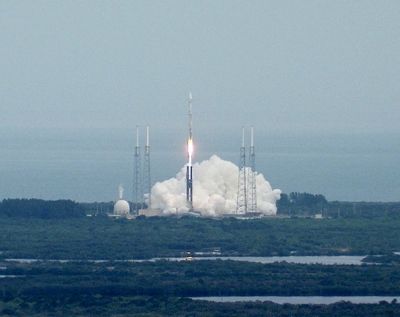 Two weeks after India successfully launched its maiden Mars mission, America's National Aeronautics and Space Administration has launched a new spacecraft to orbit the red planet to probe how it lost its atmosphere and abundant liquid water.
Two weeks after India successfully launched its maiden Mars mission, America's National Aeronautics and Space Administration has launched a new spacecraft to orbit the red planet to probe how it lost its atmosphere and abundant liquid water.
The spacecraft Mars Atmosphere and Volatile Evolution was launched from the Cape Canaveral Air Force Station in Florida. The spacecraft separated from an Atlas V Centaur rocket's second stage 53 minutes after launch. The solar arrays deployed approximately one hour after launch and currently power the spacecraft.
MAVEN now is embarking on a 10-month interplanetary cruise before arriving at Mars next September, NASA said. "MAVEN joins our orbiters and rovers already at Mars to explore yet another facet of the Red Planet and prepare for human missions there by the 2030s," NASA administrator Charles Bolden said.
"This mission is part of an integrated and strategic exploration programme that is uncovering the mysteries of the solar system and enabling us to reach farther destinations," he said.
In the next four weeks, MAVEN will power on and check out each of its eight instruments. Upon arrival at Mars in September, the spacecraft will execute an orbit insertion manoeuvre, firing six thrusters that will allow it to be captured by the Mars' orbit.
In the following five weeks, MAVEN will establish itself in an orbit where it can conduct science operations, deploy science appendages and commission all instruments before starting its one-Earth-year scientific primary mission.
"After 10 years of developing the mission concept and then the hardware, it's incredibly exciting to see MAVEN on its way," said Bruce Jakosky, principal investigator at the University of Colorado Boulder's Laboratory for Atmospheric and Space Physics in Boulder, Colorado.
"But the real excitement will come in 10 months, when we go into orbit around Mars and can start getting the science results we planned," he said.
Image: The United Launch Alliance Atlas V rocket lifts off from Space Launch Complex-41 at Cape Canaveral Air Force Station carrying the Mars Atmosphere and Volatile Evolution spacecraft on a 10-month journey to the red planet
Photograph: NASA










